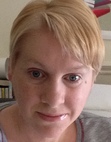Ruth F. Hunt's Blog, page 6
January 22, 2016
Is social media a recipe for real change?
Online campaigns are often accused of being ‘armchair activism,’ but RUTH HUNT talks to the people determinedly tweeting for a better tomorrow
Source: Is social media a recipe for real change?


January 6, 2016
Guest Writer – Mike Robbins
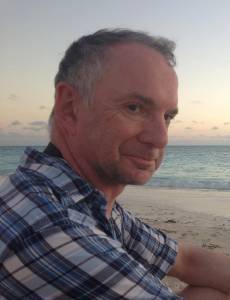 I’m delighted today to welcome author and activist, Mike Robbins to the blog.
I’m delighted today to welcome author and activist, Mike Robbins to the blog.
1)YOU’VE HAD A WIDE AND VARIED CAREER, CAN YOU TELL ME ABOUT THIS?
It’s complicated! I was a journalist in London in the 1980’s but didn’t feel I was getting anywhere. and I didn’t enjoy the 1980s ambience; everything felt selfish and horrible. So in 1987 I became a volunteer development worker in Sudan. I stayed there for two years and never really lived in England again until 2002. My overseas work has involved combining communications skills writing, editing – with development work, especially in agriculture. I’ve lived and worked in many places since Sudan, including Bhutan, Syria and European countries.
2) DID YOU FIND YOUR WORK AS A JOURNALIST HELPFUL WHEN IT CAME TO WRITING?
My initial answer to this question, was to say ‘No, they’re very different.’ But I think journalism did teach me to think about what exactly I wanted to convey, and then do so, omitting the irrelevant. These skills do matter when you’re writing fiction, though not quite in the same way.
3) YOU HAVE WRITTEN AN IMPRESSIVE NUMBER OF BOOKS, SIX IN TOTAL, COVERING BOTH FICTION AND NONFICTION. CAN YOU TELL ME ABOUT THEM?
Two of the nonfiction books are about my travels since 1987. The third is a heavyweight, academic book, ‘Crops and Carbon’, on the relationship between agriculture and climate change, based on my PHD thesis. It’s traditionally published (by Taylor & Francis).
One of the travel books, ‘Even the Dead are Coming’, is about Sudan. The other, ‘The Nine Horizons’, covers many countries, including Sudan, but also Ecuador, Bhutan, Brazil, and more. Readers have enjoyed this book but it’s a hard sell; readers are usually looking for travel books about a specific country,
Of the three fiction books, two are actually quite political. ‘The Lost Baggage of Silvia Guzman’ was written after a long trip to South America. It’s about political violence , and about how a refugee from it would fare in Britain. It was written in 1991, but with the situation in Syria it feels quite contemporary. In the end, though, it’s really about Silvia – a young woman I came to like a lot as I wrote about her. I think it’s my favourite book.
The other book with political undertones is ‘Three Seasons’. It’s three novellas, each about one British social class at the time of Thatcher. The first one is about skilled working men. The second is about a revolting estate agent and the third is about the Master of an Oxford college. All these people found their roles and rights changing in the 1980s. Again, in the end it’s about the characters, but there’s a theme there about who we are and what was happening to us. It’s divided the readers; they either like it or not.
The third fiction book, ‘Dog!’is something different. It’s a bit weird.
4) ‘DOG! IS YOUR LATEST NOVELLA AND YOU DESCRIBE IT AS ‘A POWERFUL STORY OG LOVE AND LOSS, SIN, REDEMPTION AND DOG MESS.’ WHAT WAS THE INITAL IDEA AND WHEN DID YOU START WRITING IT?
The idea goes back a long way – to a British TV programme in 1976 when I was 18. In it a Welsh hypnotherapist, Arnall Bloxham, regressed three patients back into what was purported to be their past lives. I was fascinated, as was much of the rest of the UK. It occurred to me that if you come back, it might not be as a human. The idea of working this into a book, perhaps involving a dog, had been in my mind for a long time. I finally jotted down some story ideas a couple of years ago, and then in July 2015, stalled on another project, I suddenly started to write. It took less than five weeks.
5)I THOROUGHLY ENJOYED ‘DOG!’ AND FELT THE VOICE OF THE DOG WAS TRULY INSPIRED. DID IT TAKE YOU SOME TIME TO GET IT RIGHT OR DID YOU ‘HEAR’ IT FROM THE START?
It came straight away; I didn’t have to think of it at all.
6) DOG! IS ALSO MULTI-LAYERED AND IT ALMOST GIVES A BLUEPRINT FOR LIVING. wHAT’S THE FEEDBACK BEEN LIKE FROM READERS?
It’s been good, but has been varied. Usually people have been drawn in by the dog’ antics and the comedy at the start of the book, then caught by suprise when they realise what the book is really about. A few have found themselves thinking really hard at the end, and I like that.
7) CAN YOU TELL ME ABOUT YOUR WRITING PROCESS:DO YOU HAVE A FAVOURITE TIME TO WRITE? DO YOU PLAN OUT YOUR BOOKS IN ADVANCE?
I’m mostly likely to write for an hour or so after I come home from work, in short bursts. I’m not good at finding time and I’m very bad at concentrating. I do plan out my books, in advance, but in the case of Dog!, only very roughly. That helped as the whole process was more spontaneous.
8) I’VE ARGUED THAT RISKS ARE MORE LIKELY TO BE TAKEN WITH A SMALL PRESS OR WITH SELF PUBLISHING, AND THAT HAS OPENED THE MARKET UP FOR BOOKS WITH A CONTEMPORARY, SOCIAL AND POLITICAL (BOFH WITH A CAPITAL ‘P’ AND LOWER CASE) THEME. DO YOU AGREE WITH THIS?
I’m pretty sure you’re right. I’m sensing the same increase – and it includes poetry, which is interesting. Probably these books were always around, but publishers wouldn’t take them on because they didn’t seem to appeal to what traditional publishers saw as their mainstream readership, which was ipper=middle-class people like themselves. Also, books with a radical slant are going to appeal more to young people, who can’t afford hardback novels – actually who can? But they can find £1.99 for an ebook which they’ll likely read on a device. So, I suspect this is driven by the tech revolution.
But it might also reflect a growing frustration with mainstream politics. People aren’t listening to the establishment any more. They’re talking to each other instead. It’s a truism that people are getting less interested in politics, especially the young people but perhaps they’re as committed as they ever were, it’s just expressed through a system they think is unrepresentative and irrelevant, Books that say what MPs can’t or won’t are going to become more influential. There’s also a space there for satire which can be a lot more savage than it can in the mainstream media – for example the work of Rupert Dreyfus.
9) I ENJOY READING YOUR BLOG, WHICH IS INFORMATIVE AND FUN, WHERE CAN PEOPLE FIND THIS? wHAT ABOUT SOCIAL NETWORKS?
a) Twitter – https://twitter.com/mikerobbins19
b) Blog – http://wwww.mikerobbinsnyc.blogspot.com/
c) Facebook – https://wwww.facebook.com/mikerobbinsNYC
10) I REALLY URGE PEOPLE TO READ ‘DOG!’ CAN YOU TELL READERS WHERE THEY CAN BUY IT?
Dog! is available as an ebook for just 99c (US) or 99p (UK, or as a paperback from Amazon (US and UK) Barnes and Noble, Kobo, Indigo, iTunes and more.


December 23, 2015
Morning Star :: The government’s benefit reforms are a ‘car crash’
In this third and final exclusive interview with Ruth Hunt, welfare rights specialist NICK DILWORTH assesses the impact of the Autumn Statement and already implemented measures and offers an alternative moving forward.
Source: Morning Star :: The government’s benefit reforms are a ‘car crash’


December 21, 2015
Thank you to the following people, because you helped to make my 2015!
At the start of 2015, my world was getting smaller as the depression I was experiencing was causing me to isolate myself. The big problem was in late February my novel, The Single Feather was being released. How do I promote a book when I’m fearful of leaving my home? The answer soon became clear, other people, through their friendship and actions supported me, and that is why today, I want to say thank you.
I want to say thank you to http://www.writingclasses.co.uk Author, Marianne Wheelaghan and Pilrig Press, for believing in me, and the book. My beta readers, Tom Gold, and Louisa Jones who both were extremely helpful. My editor Anne Hamilton, for giving me a masterclass in writing every time we communicated. My two friends who are also authors Kendra Olson, and Katrina Hart for support and encouragement.
Thank you to the following who all helped tremendously when the novel was released
Jacquiline Grima, Humanity Hallows, Sonya Alford, Hayley (Rather Too Fond of Books), Naomi Frisby, Amanda Saint, Rosie Claverton, Jane Issac, Rebecca Bradley, Alison Drew, Helen MacKinven, Liz Barnsley, Englantie Editing, Aquinas English Dept,Anthony Trevelyan, Rick Burgess, Russ Gascoigne, Linda Gask, Leo X Robertson, Mike Robbins, Paul Howsley and Rupert Dreyfus. There are lots more people I could mention, but for space, and the limits of this post, I’ve had to leave it at this point…
I had articles in the local press, and had been on the two main Radio Stations in my area, I had also been at Book signings at Sally Bee’s, Broadhursts Bookshop in Southport, The Olde Book Shop, Formby, Pritchards Bookshop in Crosby and News from Nowhere in Liverpool. Thank you to all those bookshops, radio stations and press. I also appeared in some disability newspapers, and a brief appearance in Mslexia along with The Writing Magazine.
Then out of the blue, I was invited by the BBC (BBC Ouch) to go to London to record a podcast with them, to talk about the book and the writing site for disabled http://thesinglefeather.com
Thank you also to Sefton Library Service for arranging talks, and to the other book groups, in particular those in Maghull and Southport.
Meanwhile, the book was continuing to make ripples, and some very lovely friends appeared who all had a connection with The Single Feather and who all made the year so much more bearable. These are the Feather Girls – Anne Babbs, author, Annie Watkinson, Rachel Whitechurch and Alison Drew. Special mention to Lesley and Chris Marshall who came along to support me at more one signing. You all made 2015 what it is!
I did worry nobody would ‘get’ The Single Feather, and I would get very few reviews, at the moment that figure is 53, with some reviews on Amazon.com as well. The book has been in the top 100 on Amazon, and I am continuing to meet people who say the book has helped them personally. To all those who’ve sent letters and cards, left reviews, and all those who’ve read the novel, thank you!
There has been also a lot of activity on Goodreads, so again, thank you all for reading and leaving such wonderful reviews.
As I was having a break from novel writing, I went back to one of my first loves which is article writing. Thank you to The Morning Star and thank you to Jayson Carmichael, Nick Dilworth, author,Linda Gask, and authors, Paul Howsley, Rupert Dreyfus, and Tara Lighten Msiska for providing some superb material
.
I also had the chance to interview six talented writers who all had a connection to the OU for the Open University Student Magazine. The authors/writers were: Jacqueline Grima, Louise Walters, Carys Bray Nick Quantrill, Janet O’Kane, and Amanda Saint.
I managed to fit in visits to Edinburgh Book Festival, where it was a delight to see my novel proudly displayed at the Edinburgh Books Fest Bookshop, and to meet Anne Hamilton and Marianne Wheelaghan for a coffee. I also went to one session at Ilkley Books Festival, which was a rather magical evening.
Keeping me company on Twitter and Facebook were a wide group of people, but special mention to Vicky Newham, Janet O’Kane Chris Marshall, Belinda Pollard, Wendy Clarke, Sarah Blohm, Anne Coates and Cath Bore, who have been all very supportive.
I passed my first O.U. exam for ages, and found out that I could count a previous course at Level 3 in with this degree, thereby shaving off an academic year of study (at Level 3). I could in theory finish my (second) degree by the summer of 2017.
Special mention to Paul Simon, who not only reviewed The Single Feather in The Morning Star, but followed it up with an article about the background to the book. As a lovely early Christmas Present, he has named The Single Feather as one of his best books of the year!!
My mood still is low, but when I look back at 2015 I see friends have all helped tremendously. When thinking about this blog post, I realized this too is the message of The Single Feather, without the acceptance of those in her community Rachel’s time in Carthom would be much more difficult. So here’s to friends, friendship and to 2016


December 19, 2015
Morning Star :: ROUND-UP 2015
Delighted The Single Feather has been named as one of the best novels of 2015!
Star critics run through what’s impressed them this year
Source: Morning Star :: ROUND-UP 2015


December 16, 2015
Morning Star :: Casualties of the Tory war on Britain’s poor
NICK DILWORTH talks to Ruth Hunt about the bleak winter facing the sick and disabled
Source: Morning Star :: Casualties of the Tory war on Britain’s poor


December 10, 2015
Morning Star :: Making workers pay
Welfare rights specialist and campaigner Nick Dilworth removes the smoke and mirrors of the Autumn Statement to examine what Osborne really has in store for low-paid workers, writes Ruth Hunt
Source: Morning Star :: Making workers pay


November 14, 2015
Morning Star :: A unique perspective on mental health
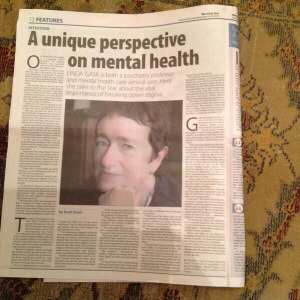 LINDA GASK is both a psychiatry professor and mental health care service user. Here she talks to the Star about the vital importance of breaking down stigma. By Ruth Hunt
LINDA GASK is both a psychiatry professor and mental health care service user. Here she talks to the Star about the vital importance of breaking down stigma. By Ruth Hunt
Source: Morning Star :: A unique perspective on mental health


November 9, 2015
Interview with author (A Blonde Bengali Wife) editor and tutor, Anne Hamilton.
It is with great pleasure I welcome, Anne Hamilton to the blog, to talk about A Blonde Bengali Wife and her writing life.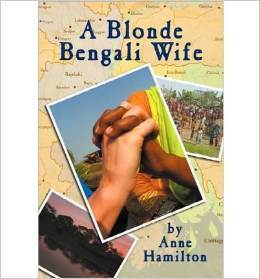
1)CAN YOU TELL ME ABOUT YOURSELF – YOUR WRITING AND BOOKS, AND WORK?
I think I’ve been writing my whole life, but there have been lengthy periods when I’ve got side-tracked. Doing a degree in social work led me on a very particular career path for a long time, but over the last ten years, writing (and editing, teaching, mentoring) has been my main focus.At the moment I feel like Jekyll and Hyde. In 2010, my travel memoir, A Blonde Bengali Wife was originally published, but it has just (November 2015) been reprinted and re-launched as an ebook. This summer I also finished my PhD in Creative Writing, which included writing a novel. So, I have that manuscript finished, but in need of revising, for (hopefully) interested literary agents and then general publication. It means I’m slithering between the marketing and self-promotion required for one, and the final editing of the other.
2) HOW MUCH RESEARCH AND PREPARATION DO YOU DO BEFORE WRITING?
For someone who is addicted (and I use that word deliberately) to writing lists, I am curiously unable to warm to specific chapter plans and character profiles. That said, I’m definitely not one who starts out with a vague idea and lets the story tell itself. I tend to draft key scenes in a novel and link them – a bit like ‘joining the dots’ – and to write individual pieces about the characters; monologues almost, or imagining them in different situations (most of which won’t go into the book) and getting to know them that way. Chasing Elena is set on Cyprus (a place I’ve visited frequently) in 2004 and 1974, so I researched the history and culture of that for accurate background.
Does it change as I write? All the time! But what the process has done has removed the fearsome ‘blank page syndrome’ where I can’t think what to write – if in doubt write around the subject.
3) DO YOU HAVE A FAVORITE TIME TO WRITE? HOW DO YOU BALANCE THIS WITH OTHER RESPONSIBILITIES SUCH AS FAMILY LIFE OR OTHER WORK?
I’m a single mother with a five year old son who goes to school five mornings a week and to bed at (optimistically) 7pm. Whilst he is away/sleeping, I do as much work as possible and within that I make time to write. So, it’s less about having a favorite time than making the most of limited ‘free’ time. I’ve learned to work late into most evenings – not my natural inclination at all – and to allow my own writing occasional priority, which is difficult because it doesn’t bring the money in.
The best side-effect of having a baby, working and studying means I don’t procrastinate any more. I really don’t and I never thought I’d say that about myself.
4) WHAT PART OF THE WRITING PROCESS DO YOU FIND THE MOST IMPORTANT?
The writing process is like building a house. You need an original concept theme that seems feasible, you design and plan plotting, characterisation) how that might evolve. Then you lay the foundation (first draft), build on it (x more drafts), deal with any bits that fall down (rewriting) and then add the roof (editing). After that are any final snags and the cosmetic work (professional editing, proof= reading) and then you try and sell the result! A convoluted way of saying each part of the process is integral and builds on the one before it. However, my personal favorite is editing and to risk another analogy, to me editing is like a jigsaw – I know all the pieces are there, I ‘just’ have to fit them in the right places.
5) WRITING HAS MANY HIGHS AND LOWS. HOW DO YOU KEEP YOURSELF MOTIVATED?
I tutor Local Authority and Adult Learning classes in Creative Writing, and those groups keep me both grounded and motivated. I appreciate the face to face contact of real, grown-up people, for whom writing is an enjoyable pastime rather than a career and who want to have fun as well as learn. I’m definitely mercurial about my writing (ability) but whatever my mood, every Monday morning I look out of my window and remind myself of how lucky I am to be free to plan my morning my way. Who else can meet a writer friend/client for coffee and legitimately call it work?
6) DO YOU USE SOCIAL MEDIA AND/OR BLOG?
After a very slow start with social media, I’ve had to hit the ground running. I started a blog in 2010 to mark the publication of A Blonde Bengali Wife. Now, I post in it about once a month and it’s really an open diary about writing, people’s achievements and the charity, Bhola’s Children (which is supported by income from the book). When i took the unlikely decision to self-publish the ebook reprint, and realised the marketing and promotion required, I had to learn about Twitter from scratch, build a Facebook pagem and get my head around things like blog tours…I couldn’t have done any of that without my colleague, and now friend Clare Morely http://www.myepublishbook.com and another friend I’ve only made through social media, Alison Drew.
I’ve seen the power of social media in marketing, but i still find it baffling. I’ve found it very friendly and supportive, not to mention informative, but it’s very time=consuming. (When does a writer ever get chance to write any more?) I suppose you could say I’m on the fence.
7) IF YOU COULD PASS ONE PIECE OF ADVICE TO A NEW WRITER WHAT WOULD IT BE?
Write. There is a vast difference between being a writer and liking the idea of writing, Fundamentally, it’s down to how many words you have on the page, and if you can keep going and finish whatever you started. It’s very easy to talk about writing, read about it, listen to everyone’s opinions about it – back to social media again – and dream about being the next JK Rowling or EL James. There’s nothing wrong with any of that, but if you want to be a writer you need to put in the work; whoever said writing was 10% talent and 90% perseverance had a very good point.
Thank you Anne for a very informative interview! Good Luck with the relaunch of A Blonde Bengali Wife.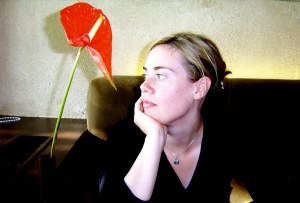
You can buy A Blonde Bengali Wife from Amazon
Anne’s blog is at
http://www.anne-ablondebengaliwife.blogspot.co.uk/
Her Facebook page is:
http://www.facebook.com/ablondebengaliwife/?fref=ts
Find her on Twitter:
@Anne_ABBW and @AnneHamilton7
http://www.bholaschildren.org
http://www.annehamiton.co.uk


November 2, 2015
Author Interview with Michelle Green
It is with pleasure that I welcome Michelle Green to the blog, as part of my activist-author series.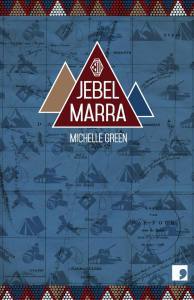
1) CAN YOU TELL ME ABOUT YOUR NEW BOOK OF SHORT-STORIES, AND WHAT INSPIRED THEM?
I’ve written 15 interlinked short stories, collected together as JEBEL MARRA, in a particular place and time: Darfur, in 2005. I spent six months as an aid worker in West Darfur, near the beginning of what is now a 12 year-long war. I came back to silence in the UK, with barely anything visible in our media about the violence in Sudan, and I couldn’t stand it, so I started writing
2)WE NOW HAVE A HUMANITARIAN CRISIS UNFOLDING AS A RESULT OF THE CONTINUED HOSTILITIES IN AND AROUND SYRIA. WHAT DO YOU THINK THE WRITERS ROLE WOULD BE IN RESPONSE TO SUCH A CRISIS?
In a humanitarian crisis like the one we’ve seen erupting from Syria over these past few years, writers can bear witness, reveal, and write breath into the statistics and the rolling news feeds that too quickly become detached from the lives of the affected people – particularly those writers who are deeply connected to the area (I’m thinking here of SYRIA SPEAKS a recent collection of writing and art by Syrian artists). Writers have imagination as one of their tools, and with that, I think one of their roles is to find those crossing points where fact and possibility meet, to find language for things that seem beyond words, to speak about human experience – the inside as well as the outside. Writers can step into a pocket of silence, and speak.
3)IN WHAT WAYS DO YOU THINK YOUR CAREER IN ACTING, AND WORK IN THEATERS HAS CONTRIBUTED TO YOUR WORK TODAY?
It wasn’t much of a career per se, but it did get me on the road to writing! I started acting professionally when I was 11, and spending that time with adults who built lives from playing pretend, from imagining and travelling into other people’s experiences, made me realize that that was actually a real job! Most of them also had other jobs of course, but they showed me that a creative life wasn’t just for the (rich) few…as long as you were willing to do whatever other work was needed to pay the bills. By the time I got to my twenties the frustration started to build. There were not a lot of decent roles for women, so I started writing.
I guess one thing that theatre gave me was the awareness of audience. Writing only really exists with the reader/listener, as some kind of shared imagining, and I kept returning to that as I wrote JEBEL MARRA.
4) YOU DO A LOT OF COMMUNITY WORK, CAN YOU TELL ME ABOUT THIS?
I started in community arts a long time ago, working as an assistant alongside writer and activist, Louise Wallwein as she worked with a group of young refugees. I remember being blown away by how powerful that was: storytelling, in a group. It’s not ‘teaching’ in the formal sense, but more like creating the conditions for people to experiment and express, to write themselves and their worlds, and to do that together.
Since then, I’ve aimed for that with every group I’ve worked with. I’ve gotten pretty evangelical about creativity being an essential part of health – for individuals, families, communities – as I’ve seen it working again and again. I love it. It gives me hope.
5) WHERE CAN WE BUY JEBEL MARRA?
You can buy the book directly from Comma Press *which means they get more of the profits – support indie publishing!) at their website here:
http://www.commapress.co.uk/books/jebel-marra
6)CAN YOU SHARE WITH THE READERS OF THIS BLOG, A SHORT EXTRACT FROM YOUR BOOK?
The Waiting Room, extract from JEBEL MARRA
What I remember is this: summers so short and hot the grass barely had a chance. Running down to the Red River and the new roads beyond, winter salt still staining them pale grey. The two of us lying beneath a sprinkler, shirtless, with no hassle from anyone, our eyes squeezed shut against the sky.
I remember the wood frame skeletons of the new houses, a whole load of them sitting in crescents by the dike, making postcards of the sun as it set late and shone through homes so new they didn’t even have skin on them yet. I remember making our own worlds in those houses, racing up and down the stairs, shrieking as the bats came in at last light, sitting for hours with the orange cat as she licked her pile of newborn kittens.
One of the skeleton houses had a pool out back, a huge hole with no tiles yet, just pure smooth concrete. We threw in an old armchair that we dragged from the dumpster, doused it with lighter fluid and screamed with delight as it burned. Dizzy. Blew black stuff out of noses the next day, but told no one. A secret, A beautiful black-snot secret.
Now in Darfur, I get the same smell, a bottle full of burning petrol flies over the wall in the night, explodes on the ground and takes out two garden chairs and a ropey banana tree. It’s the same feeling I had that night with the armchair, but it’s all wrong this time, the wrong reaction in the wrong place, so I feel it, and keep it to myself. Everyone else is gasping, or shouting, or running to the street to see who could have thrown it. I just stand there in the dark watching it all, watching the smoke turn out the stars.
TO FIND OUT MORE ABOUT MICHELLE AND HER WORK HER WEBSITE IS HERE:
http://www.michellegreen.co.uk



